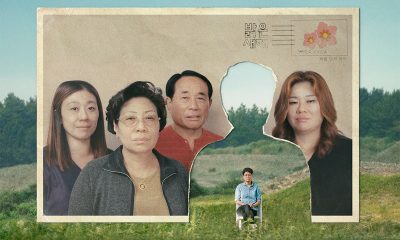World
Out in the World: LGBTQ news from Europe and Asia
South Korea court upheld criminalization of same-sex relations in the military

South Korea

This past week on Oct. 27, the second highest court in South Korea upheld an earlier ruling for the fourth time, the Military Criminal Act, that criminalizes same-sex relations in the military.
The Constitutional Court of South Korea, in a 5-4 vote, ruled that article 92-6 of the military criminal act was constitutional. Justices in their ruling stated that same-sex activities might undermine discipline and harm the combat capabilities of the military. Same-sex activities between civilians however, is not a crime.
Article 92-6 of the Military Criminal Act (“Article 92-6”) provides that a person who commits anal intercourse or any other indecent act with “a military person” shall be punished by imprisonment for not more than two years.
Human rights activists have noted that the South Korean military has invoked Article 92-6 to punish sexual acts between male servicemen with sentences of up to two years in prison — regardless of whether the acts were consensual or whether they happened within or outside of military facilities.
Several of South Korea’s allies including the U.S. and the U.K. have repealed provisions similar to Article 92-6 of the Military Act of South Korea in order to align with international obligations to protect against the discrimination of LGBTQ people.
The executive director of the Center for Military Human Rights Korea, which provides legal assistance to soldiers including those accused of breaking the anti-sodomy law, Lim Tae-hoon said the decision was “absurd, illogical, regressive and driven by prejudice.
“While the world has been making progress in abolishing discrimination against minorities over the past 20 years, the minds of the judges have not advanced even a single step,” he added.
Lim pointed out that: “this law can be abused at any time to harass many sexual minority soldiers due to their sexual orientation. In addition, among the constitutional appeal cases supported by the Military Sexual Violence Counseling Center affiliated with the Military Human Rights Center, there is one case in which the military prosecutors believed the words of the perpetrator of same-sex sexual violence and suspended indictment by claiming that the sexual intercourse was consensual with the victim.
“The perpetrator was sentenced to three years in prison by the final ruling of the Supreme Court and is currently serving his sentence. Constitutional Court judges argue that the law of indecent assault should remain in place to protect victims of same-sex sexual violence in the military, but in reality, it is being abused as a means of imprisoning and punishing victims. Without understanding how the world works or how the law operates, they were caught up in prejudice and stubbornness and made regressive decisions.”
Japan
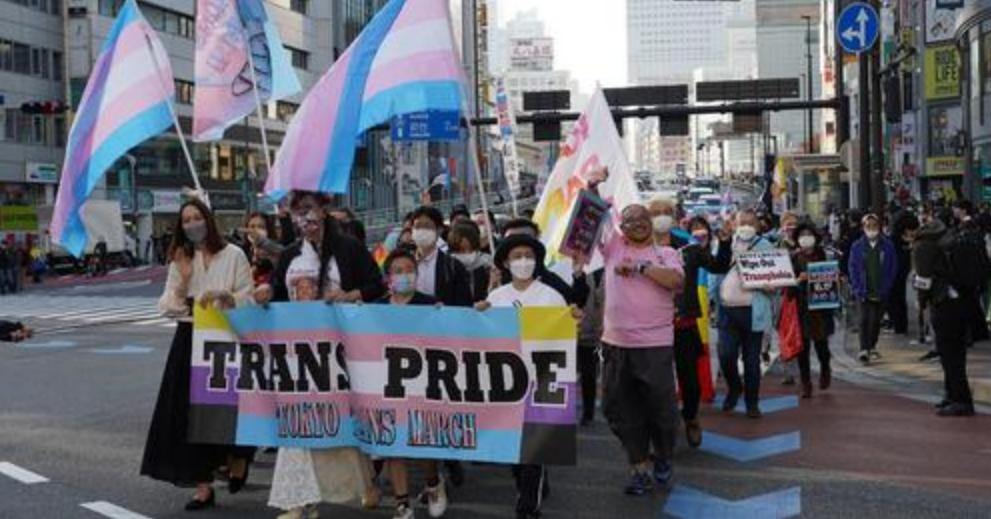
Last week on Oct. 25, Japan’s highest court ruled in a unanimous decision that the country’s law mandating sterilization surgery for transgender people as a requirement for legal gender recognition was unconstitutional.
In the ruling, the 15 justices wrote: “Being forced to undergo sterilization surgery … constitutes a significant constraint on freedom from invasive procedures” in violation of the Japanese Constitution.
Human Rights Watch Japanese Director Kanae Doi noted that since 2004, trans people in Japan who want to legally change their gender must appeal to a family court. Under the Gender Identity Disorder Special Cases Act, applicants must undergo a psychiatric evaluation, be surgically sterilized, and “have a physical form that is endowed with genitalia that closely resemble the physical form of an alternative gender.” They also must be single and without children who are younger than 18.
In May 2023, the Supreme Court ruled in favor of the right of a trans woman government employee to use the restrooms in accordance with her gender identity. In November 2022, the government in Japan’s Kanagawa prefecture awarded another trans woman workplace compensation after recognizing her depression was the result of harassment she faced from her supervisor.
Earlier this month, a local family court ruled in favor of a trans man, Gen Suzuki, who requested to have his gender legally changed without undergoing the surgery, the BBC reported.
The family court judge, Takehiro Sekiguchi, said the current law violated Article 13 of the constitution that stipulates all people shall be respected as individuals.
According to the Japanese government’s statistics, sexual minorities (LGBTQ) make up for 3 to 8 percent of the population and that at most, the statistics estimate that around 0.7 percent of the population is trans.
They are an overwhelming minority. The overwhelming majority of people do not know about trans people, and various prejudices are widespread.
The “LGBT Understanding Promotion Act,” which was passed by the Japanese Parliament in June 2023, includes the sentence “we will take care to ensure that all citizens can live their lives with peace of mind,” but according to Japanese trans activist Aya Nishida, the background to this is “If you say you are a woman at heart, you are a man. This is because some people have discriminatory views such as, “If transgender people’s human rights are recognized, women’s human rights will be threatened.”
Nishida provides training on the human rights of trans people to local governments, about issues surrounding trans people.
While the Supreme Court has ruled against the sterilization requirement, it has asked a lower court to review the requirement to have “genitalia that closely resemble the physical form of an alternative gender.”
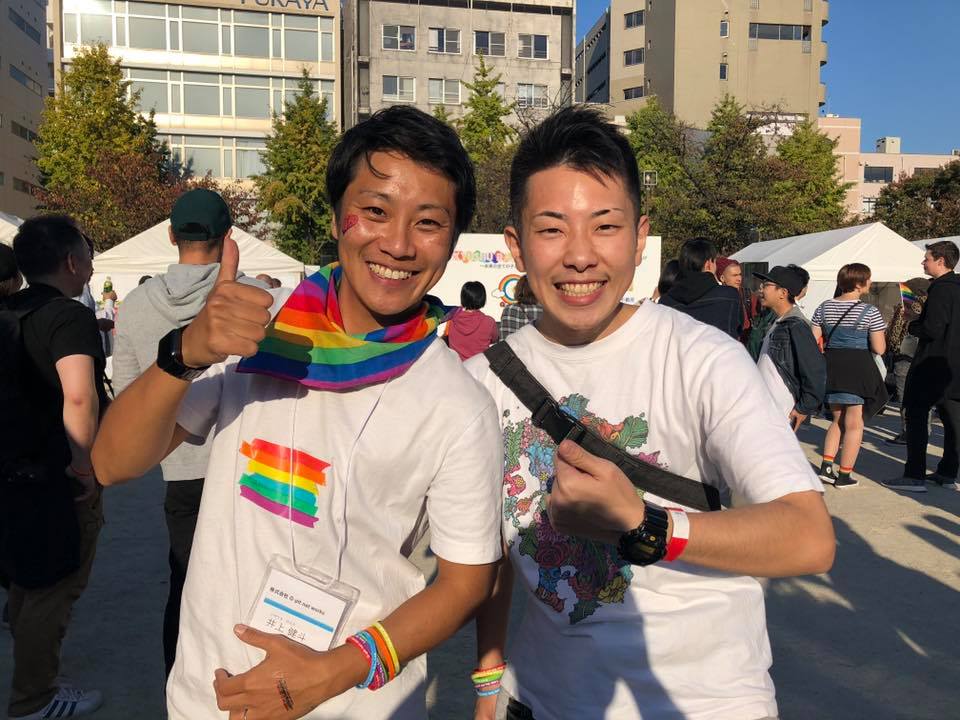
As of Oct. 1, 26 local governments in at least 12 prefectures across the country have enacted ordinances that codifies the prohibition of “outing,” which is the act of disclosing a person’s sexual orientation or gender identity without their consent.
According to a study conducted by the Research Institute of Local Government in Tokyo, these efforts highlights that some municipalities have made to protect the human rights of LGBTQ people since passage of the Act to Promote Understanding of LGBT and Other Sexual Minorities by Parliament this past June. That does not explicitly prohibit acts such as outing.
According to human rights groups and LGBTQ advocacy organizations, outing constitutes a serious human rights violation and it was defined as a form of abuse of power in the guidelines for legislation.
The Kyodo News reported that in July this year, it was disclosed that a man had been deemed eligible for compensation from his employer by a Tokyo labor office last year after his boss revealed he was gay without his consent, but the current law is limited in scope to the workplace.
The harmful consequences of outing hit the national consciousness in 2015, when a graduate student of Hitotsubashi University in Tokyo died after plunging from a school building in an apparent suicide after being outed as gay.
In the wake of that incident, the city of Kunitachi, which hosts the university, became the first local government to enforce an ordinance banning the outing of LGBTQ people in April 2018.
In a statement to media outlets in Japan, Yuichi Kamiya, the executive director of the LGBT Law Federation said:
“Outing is considered harassment and must be prevented in the workplace, but there are no laws in place for other settings such as schools and medical care, so it is difficult to know what constitutes it and what specific details are required. There is still not widespread understanding of how to respond.
It is important to clearly state the prohibition in ordinances, and it can also lead to public awareness, prevention and relief in the event of damage. The more discriminatory the environment surrounding the person concerned, the greater the impact of outing. Further awareness is needed in each field to prevent further damage. When someone comes out, the first thing you should do is ask them who they can talk about and how much they can talk about. If you have any concerns, please consult with a specialist who respects confidentiality obligations.”
Currently, none of the ordinances passed across Japan have criminal law penalties.
Hungary

The far-right anti-LGBTQ government of Hungarian Prime Minister Viktor Orbán has banned children under the age of 18 from visiting the World Press Photo exhibition Hungarian National Museum in Budapest, citing LGBTQ content in some of the photos.
Since taking power, Orbán and his ruling party have waged an unceasing campaign to restrict the rights of LGBTQ Hungarians. In July 2021, the government passed a law that bans the promotion of homosexuality and sex-reassignment surgery to minors in the country.
This past summer Hungary’s second-largest bookstore chain was fined for violating the 2021 law that limits the access of minors to books, media content and advertisements that “promotes or portrays” the so-called “divergence from self-identity corresponding to sex at birth, sex change or homosexuality.”
The chain was fined for selling copies of British author Alice Oseman’s LGBTQ graphic novel series “Heartstopper,” a global phenomena due to the runaway hit Netflix show based on her books in the series.
According to the interpretation of the Háttér Society, a Hungarian organization focused on LGBTQ rights, a parent could break the law solely by buying a child a young adult novel that features an LGBTQ character.
Reuters reported that this past Saturday, the museum stopped selling tickets for the photo exhibition for youngsters after the far-right Our Homeland party had initiated a government inquiry, the party said.
“Based on the initiative of Mi Hazank, youngsters under 18 cannot visit the exhibition at the National Museum as it violates the child protection law,” the far-right party told state news agency MTI. The new rule was posted on the museum’s website later on Saturday.
Neither the museum nor the Our Homeland party responded to requests for comment.
The Vatican
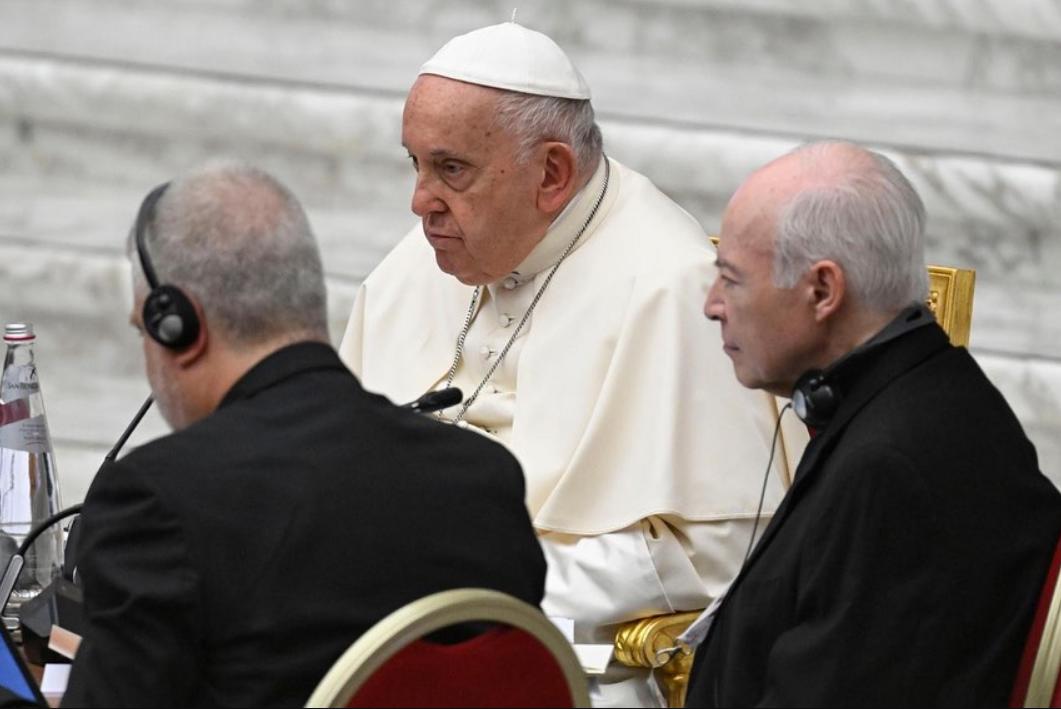
The month-long conference held in the Paul VI Hall at the Vatican regarding the future of the world-wide Roman Catholic Church ended on Saturday, without a clear course of action for the church on the issues of ordaining women as deacons or the treatment and care for its LGBTQ members.
The gathering, known as a Synod of Bishops, followed an unprecedented two-year canvassing of rank-and-file Catholics. The 365 synod participants included 300 bishops along with lay men and about 50 women who were mostly lay people, Reuters reported.
At the synod, the pope gave women and lay people a vote on church affairs for the first time. The participants meet for a final session in a year, then the pope will write a document on issues facing the church.
A 41-page report, approved and published Saturday at the close of the conference, called for the results of earlier papal and theological commissions on women deacons to be presented for further consideration at the next assembly of the Synod of Bishops, to be held in October 2024.
The report, titled “A synodal church in mission,” did not take a stand on LGBTQ issues despite discussion beforehand that the synod might call on the church to be more welcoming to the LGBTQ community, Reuters reported.
During a press briefing after the publication of the final report, Cardinal Mario Grech, who heads the Vatican’s synod office, on a question regarding LGBTQ Catholics, said that the assembly felt a need to “respect everyone’s pace.” He added: “It doesn’t mean if your voice is stronger it will prevail.”
Jesuit Fr. James Martin, a popular spiritual author and editor of the LGBTQ Catholic publication Outreach who took part in the synod as a voting member, told the National Catholic Reporter he was “disappointed but not surprised” by the result for LGBTQ Catholics.
“There were widely diverging views on the topic,” said Martin. “I wish, however, that some of those discussions, which were frank and open, had been captured in the final synthesis.”
United Kingdom
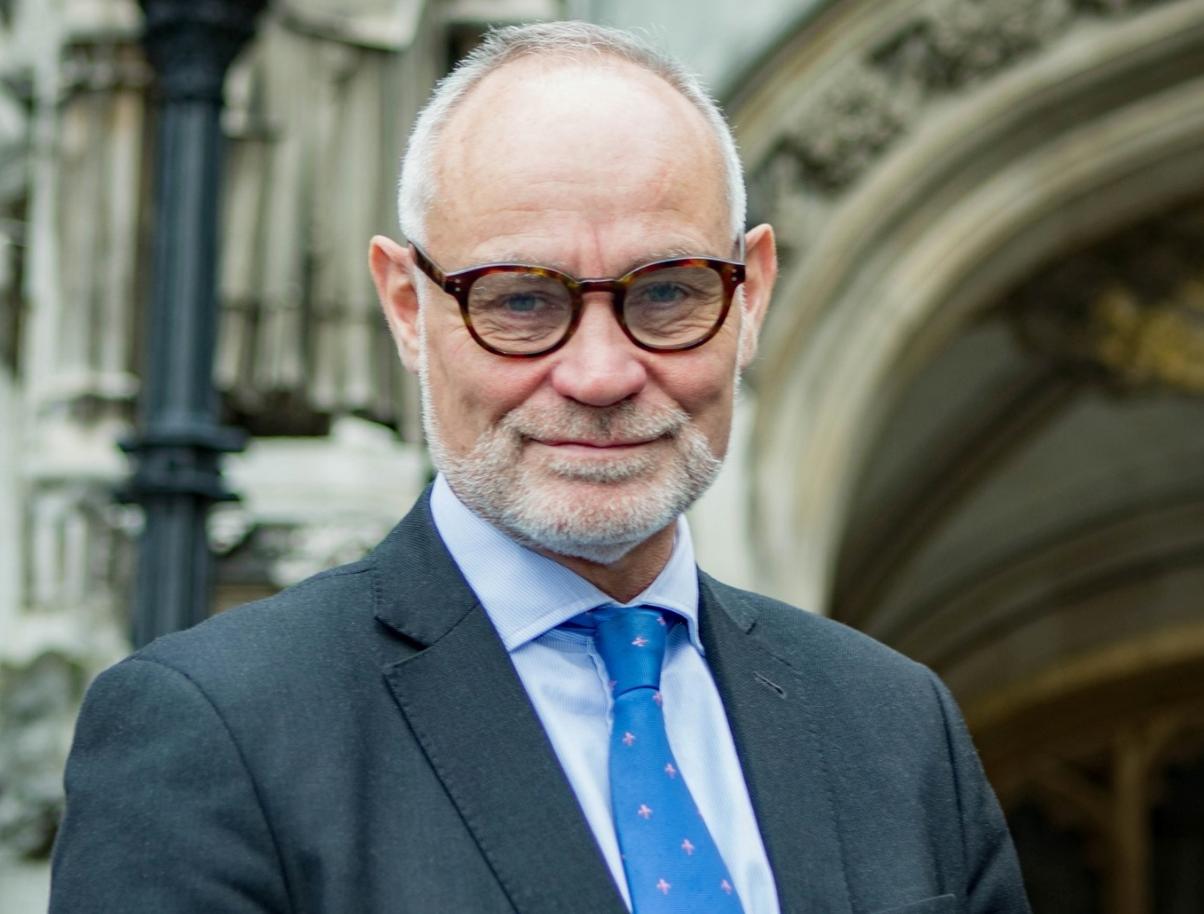
Crispin Blunt, the openly gay Conservative MP for Reigate was arrested in connection with an allegation of rape and possession of a controlled substance earlier this month at his home in Horley by the Surrey Police.
Blunt, served for two years as a justice minister and two years as chair of the Foreign Affairs Committee in the House of Commons, publicly came out as gay in 2010, announcing that he had separated from his wife and was “coming to terms with his homosexuality.”
British media outlet The Telegraph reported Blunt claimed in a statement that Surrey Police had begun an investigation three weeks ago when he reported “concerns over extortion.” The Conservative Party confirmed on Thursday night the 63-year-old has been stripped of the party designation, effectively meaning he has been expelled from the Conservative Party. He will now sit in the House of Commons in Parliament as an Independent member.
Taking to X, formerly Twitter, Blunt posted a statement saying, “The fact of the arrest requires a formal notification of the speaker and then my chief whip.
I have now been interviewed twice in connection with this incident, the first time three weeks ago, when I initially reported my concern over extortion. The second time was earlier this morning under caution following arrest.”
“The arrest was unnecessary as I remain ready to cooperate fully with the investigation that I am confident will end without charge,” Blunt continued. “I do not intend to say anything further on this matter until the police have completed their inquiries,” he added.
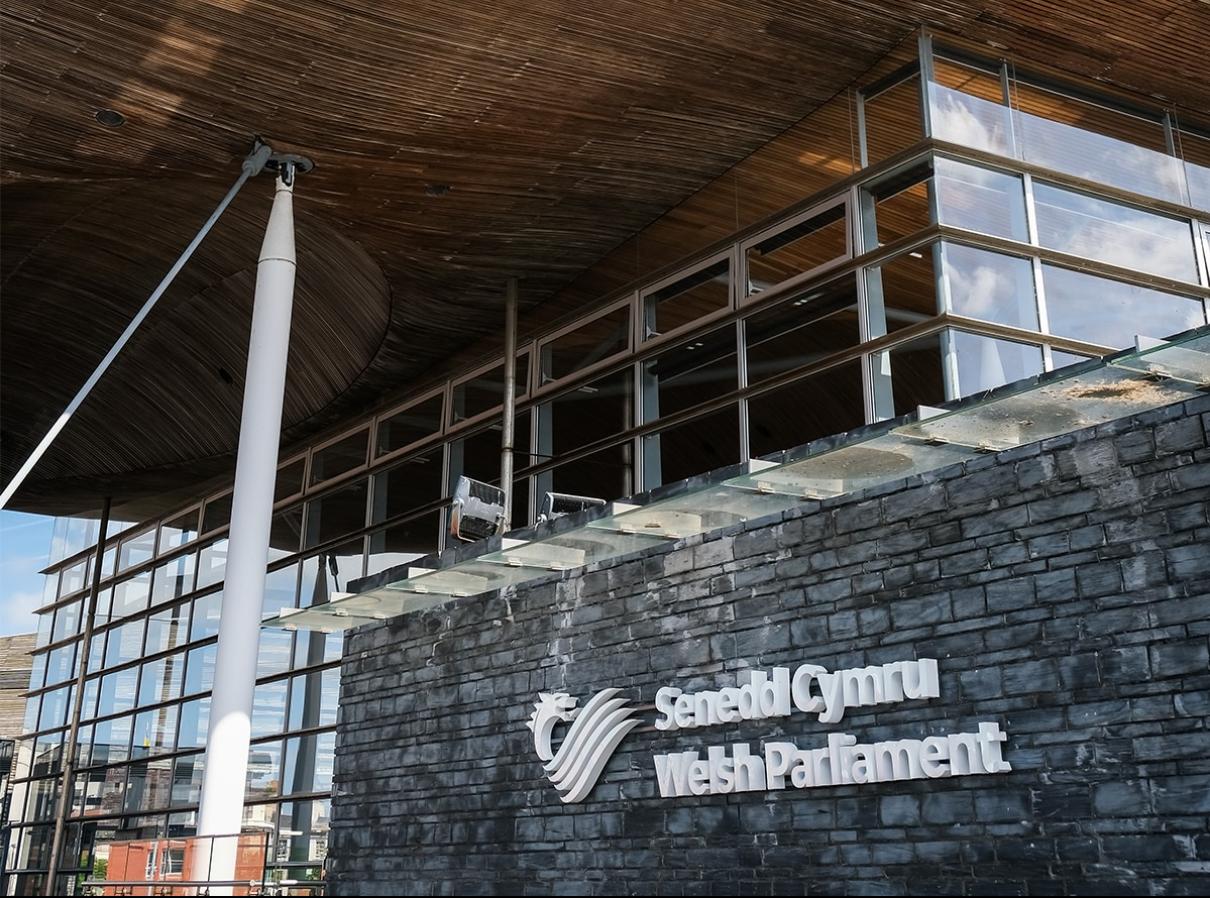
The Welsh government appears to be setting itself on a potential collision course with Prime Minister Rishi Sunak’s government after the leak of a draft of the Welsh government’s Gender Quotas Bill Sunday evening, which would allow people to self-identify their gender when running for the Welsh Parliament.
The Telegraph reported that the bill proposes plans for a gender-balanced Parliament by having set equal quotas for male and female political candidates. Under this draft bill, the definition of a woman will be updated, so that the female quota of party candidates running for office may include trans women.
The definition further stated that trans meant “a person who is proposing to undergo, is undergoing or has undergone a process (or part of a process) for the purpose of reassigning [their] sex to female by changing physiological or other attributes of sex.”
Reaction from transphobic opponents included an outspoken “gender critical” leader, Cathy Larkman from Women’s Rights Network Wales, who said in an emailed statement:
“We know from bitter experience that Welsh government is not listening to the concerns of women in Wales. We, along with other groups, have been shut out time and again. Unfortunately, the reasons for this are now apparent.
The government is now intent on driving a highly contested ideological agenda and this is clearly their first step. It is astonishing that the government is spending public funds and using a Gender Quotas Bill to promote an agenda which undermines the rights of half the population of Wales.
It is shameful that they are high-jacking legislation that should benefit women and increase female participation in political life, to embed a toxic and misogynistic ideology. We believe that the intention of the Welsh government is to introduce gender self-identification and put it on a statutory footing.
We believe this is the first step towards a full self-ID bill which would have serious implications for women and girls in particular as it would impact on single-sex services and spaces such as changing rooms, intimate care, hospital wards and domestic violence services.
It is unforgivable that the first minister and his government, aided and abetted by Plaid Cymru [a political party] intend to betray the women of Wales in this underhand way.”
PinkNewsUK noted that this bill echoes a similar plan put forward by the Scottish government in January that would have made it easier for people to legally change their gender, which was blocked by the UK government.
The leak has had a mixed response from the public. While the trans community and its advocates are pleased with the progressive step forward, anti-trans hate groups and so-called women’s rights groups are up in arms.
Commenting on the leaked bill, a spokesperson for the Welsh government told the Telegraph that it did not represent the latest version of the Gender Quotas Bill, though they did not say whether that had to do with the redefinition of women.
“Our proposed model for quotas is designed to maximize the chances of achieving a Senedd comprised of at least 50 percent women. Work is ongoing on the bill,” said the spokesperson.
The first minister of Wales, Mark Drakeford, has been a longtime defender of trans rights, and has repeatedly shared his pro-trans beliefs in Parliament, PinkNewsUK also reported.
Additional reporting by the Kyodo News, the BBC, Reuters, Agence France-Presse, the Telegraph and PinkNewsUK
Russia
Russia designates ILGA World an ‘undesirable’ group
Justice Ministry announced designation on Jan. 21

Russia has designated a global LGBTQ and intersex rights group as an “undesirable” organization.
ILGA World in a press release notes the country’s Justice Ministry announced the designation on its website on Jan. 21.
The ministry’s website on Tuesday appeared to be down when the Washington Blade tried to access it. ILGA World in its press release said the designation — “which also reportedly includes eight other organizations from the United States and across Europe” — “has been confirmed by independent sources.”
“ILGA World received no direct communication of the designation, whose official reasons are not known,” said ILGA World.
The Kremlin over the last decade has faced global criticism over its crackdown on LGBTQ rights.
ILGA World notes Russians found guilty of engaging with “undesirable” groups could face up to six years in prison. The Russian Supreme Court in 2023 ruled the “international LGBT movement” is an extremist organization and banned it.
“Designating human rights groups ‘undesirable’ is outlandish and cynical, yet here we are,” said ILGA World Executive Director Julia Ehrt. “But no matter how much governments will try to legislate LGBTI people out of existence, movements will stay strong and committed, and solidarity remains alive across borders. And together, we will continue building a more just world for everyone.”
Honduras
Corte IDH reconoce a Thalía Rodríguez como familia social de Leonela Zelaya
Se construyeron una familia tras más de una década de convivencia

Por DORIS GONZÁLEZ * | TEGUCIGALPA, Honduras — En la sentencia del caso Leonela Zelaya y otra vs Honduras emitida por la Corte Interamericana de Derechos Humanos se estableció un hito jurisprudencial para las personas LGBTQ en Honduras, así como en la región en relación a las diversas conformaciones de familias existentes. La Corte IDH interpretó por primera vez el concepto de familia social, indicando que la construcción de familia no debe restringirse a la familia nuclear o a nociones tradicionales, bajo el entendido de que hay diferentes formas en las que se materializan los vínculos familiares.
Este análisis se trae a colación debido al contexto de discriminación, prejuicio y violencia que atravesamos las personas LGBTQ, el cual se puede manifestar incluso dentro de nuestras propias familias. Esta violencia se manifiesta a través de actos de odio como ser el desarraigo familiar, violencia física, psicológica, social, económica, expulsiones de los hogares, violaciones correctivas e incluso, culminando en muertes violentas. Esta violencia motivada por la orientación sexual, identidad y expresión de género de las personas imposibilita la convivencia familiar.
Ante esto, las personas LGBTQ construimos vínculos sociales fuera del vínculo familiar tradicional, los cuales a través de la convivencia, amistad, apoyo económico-social y construcción de vida en común constituyen familias, tal como ocurrió en este caso.
Tras el abandono de su familia biológica, Leonela Zelaya y Thalía Rodríguez construyeron una familia tras más de una década de convivencia, en los cuales se apoyaron mutuamente en diversas situaciones, viviendo como mujeres trans, portadoras de VIH, ejerciendo el trabajo sexual y en situación de pobreza, enfrentando constantes episodios de detenciones arbitrarias y violentas por parte de los órganos policiales.
Tras su asesinato, fue Thalía quien recogió el cuerpo de Leonela en la morgue de Tegucigalpa y quien gestionó el féretro a través de la Funeraria del Pueblo. Los servicios fúnebres de Leonela Zelaya fueron realizados en un bar por mujeres trans, trabajadoras sexuales, al cual no asistió ningún miembro de su familia biológica.
El asesinato de Leonela y la falta de esclarecimiento generaron a Thalía un sentimiento de inseguridad, frustración e impotencia. Por estas violaciones de derechos humanos, la Corte reconoció a Thalía Rodríguez, en calidad de familiar de Leonela, como víctima del caso, generando estándares aplicables a todas las personas LGBTQ.
A juicio de la Corte, esta situación lleva a que, en casos de muertes violentas de mujeres trans, las personas que integren las redes de apoyo de la persona fallecida puedan ser declaradas víctimas por la violación de sus derechos a la integridad psíquica o moral, siempre que se acredite la existencia de un vínculo estrecho con la víctima y una afectación a sus derechos, derivada, por ejemplo, de las gestiones realizadas para obtener justicia. Esta sentencia logra reconocer que las personas LGBTQ construimos familias sociales, familias elegidas, e indica que estas deben ser reconocidas y validadas.
* Abogada litigante del caso Leonela Zelaya y otra vs Honduras, Red Lésbica Cattrachas
Uganda
LGBTQ Ugandans targeted ahead of country’s elections
President Yoweri Museveni won 7th term in disputed Jan. 15 vote

Barely a week after Ugandan President Yoweri Museveni secured a 7th term in an election marred by state violence, intimidation, and allegations of fraud, the country’s queer community spoke about how the election environment impacted it.
The LGBTQ lobby groups who spoke with the Washington Blade noted that, besides government institutions’ failure to create a safe and inclusive environment for civic participation by all Ugandans, authorities weaponized the Anti-Homosexuality Act to silence dissent and discourage queer voter engagement.
The rights groups note that candidates aligned with Museveni’s ruling National Resistance Movement — including Parliament Speaker Anita Among — during the campaigns accused their rivals of “promoting homosexuality” to discredit them while wooing conservative voters.
Queer people and LGBTQ rights organizations as a result were largely excluded from the formal political processes for the election as voters, mobilizers, or civic actors due to fear of exposure, stigma, violence, and legal reprisals.
“This homophobic rhetoric fueled public hostility and emboldened vigilante violence, forcing many queer Ugandans into deeper hiding during the election period,” Uganda Minority Shelters Consortium Coordinator John Grace stated.
Some queer people had expressed an interest in running for local council seats, but none of them formally registered as candidates or campaigned openly because of safety concerns and local electoral bodies’ discriminatory vetting of candidates.
“UMSC documented at least three incidents of election-related violence or intimidation targeting LGBTQ+ individuals and activists,” Grace noted. “These included harassment, arbitrary detentions, extortions by state and non-state actors, digital cat-fishing, and threats of outing.”
Amid such a militarized and repressive election environment, Let’s Walk Uganda Executive Director Edward Mutebi noted queer-led and allied organizations engaged in the election process through restricted informal voter education, community discussions, and documenting human rights violations.
“Fear of backlash limited visibility and direct participation throughout the election cycle,” Mutebi said. “But despite the hostile environment of work, Let’s Walk Uganda was able to organize a successful transgender and gender diverse youth training on electoral security and safety.”
Museveni’s government escalated its repressive actions during the Jan. 15 elections by shutting down the internet and suspending nine civil society organizations, including Chapter Four Uganda and the National Coalition of Human Rights Defenders, for allegedly engaging in activities that are prejudicial to the security and laws of the country.
The suspension of the rights organizations remains in force, an action both Mutebi and Grace condemn. They say it prevents queer Ugandans from accessing urgent services from the affected groups.
“For the LGBTQ community, the impact has been immediate and deeply harmful. Many of the suspended organizations, like Chapter Four Uganda, were critical partners in providing legal representation, emergency response, and documentation of rights violations,” Grace said.
This has compelled UMSC and its other partners to handle increased caseloads with limited resources, while navigating heightened scrutiny and operational risk.
“The suspension has disrupted referral pathways, delayed urgent interventions, and weakened collective advocacy for marginalized groups and minority rights defenders, which calls for urgent international solidarity, flexible funding, and protection mechanisms to safeguard the work of grassroots organizations operating under threat,” Grace stated.
Mutebi warned that such repressive actions are tyrannical and are indicative of shrinking civic space, which undermines democratic accountability as the promotion and protection of human rights is ignored.
With Museveni, 81, extending his tenure at State House from a landslide win of 72 percent, UMSC and LWU consider a bleak future in the protection of rights for queer Ugandans and other minority groups.
“Without significant political and legal shifts, LGBTQ persons will face continued criminalization, reduced civic space, and heightened insecurity, making sustained advocacy and international solidarity more critical than ever,” Mutebi said. “ It is unimaginable how it feels to live in a country with no hope.”
Grace, however, affirmed the resistance by local queer lobby groups will continue through underground networks, regional solidarity, and digital organizing.
The duo noted that a win by Museveni’s main challenger and rapper, Bobi Wine, who only managed 24 percent of the total votes cast, could have enabled the opening up of civil space and human rights protections in Uganda.
Wine, for his part, spoke in favor of the respect for the rule of law and human rights during his campaign.
“While Bobi Wine’s past stance on LGBTQ rights was inconsistent, his recent shift toward more inclusive rhetoric and international engagement suggested a potential opening for dialogue,” Grace said. “A win might have created space for policy reform or at least reduced state-sponsored homophobia, though structural change would still require sustained pressure and coalition-building.”
Mutebi stated that a change in Uganda’s leadership to a youthful leader like Wine could have offered an opening, but not a guarantee for progress on inclusion and human rights. Mutebi added existing institutionalized and societal homophobia remain in place.

